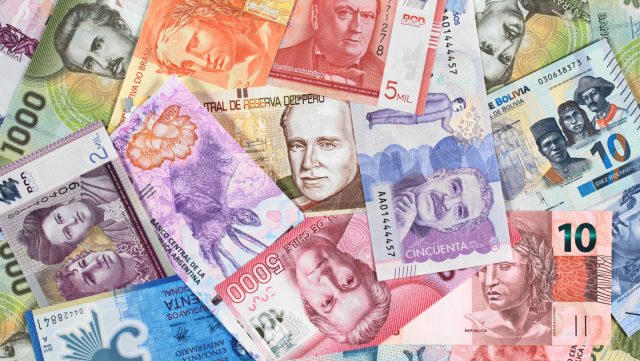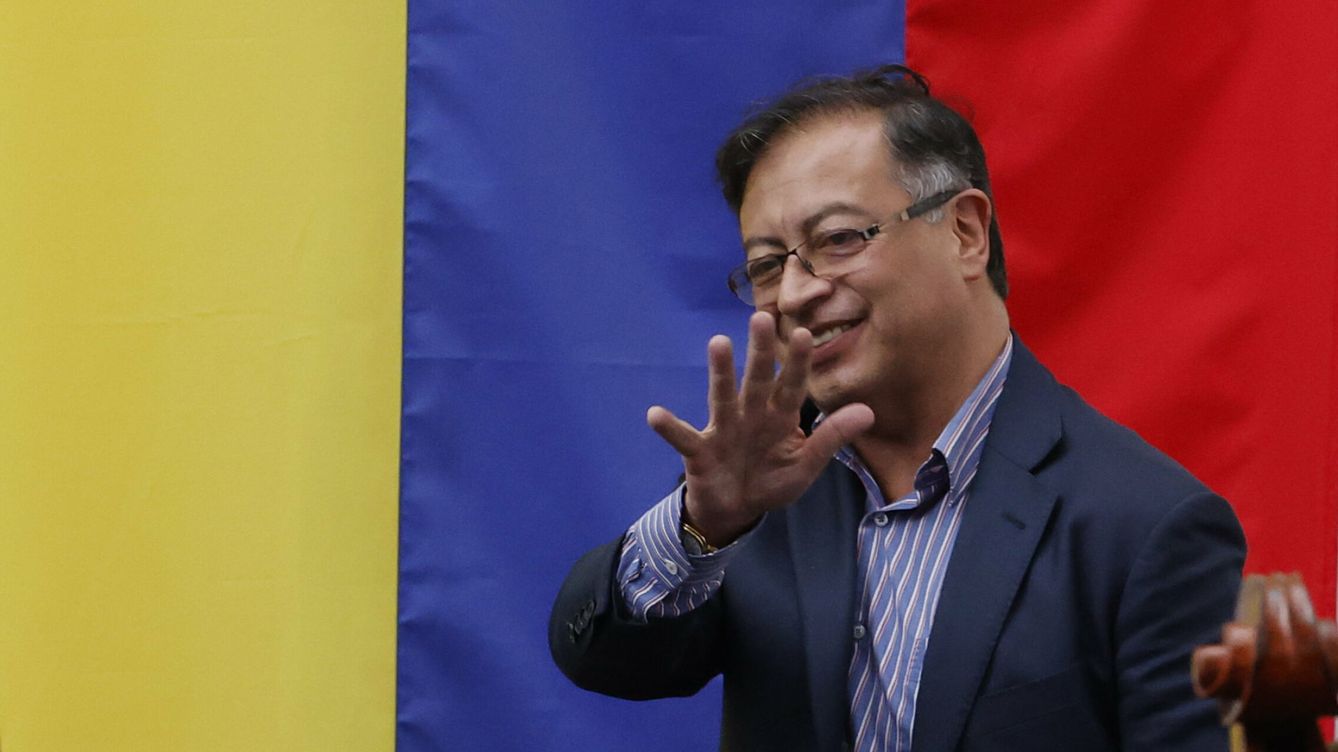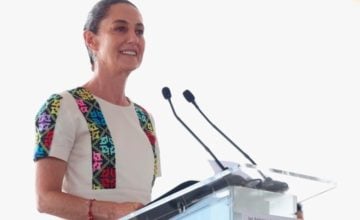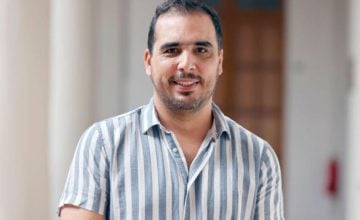The issue of regional integration is back and with it, a currency for Latin America. Several Latin American leaders have highlighted the urgency of advancing now, once and for all, in the integration of the Continent, explains journalist Ariel Noyola Rodríguez.
From the president of Mexico, Andrés Manuel López Obrador, to the elected president of Colombia, Gustavo Petro. The same goes for his counterpart from Argentina, Alberto Fernández, just to mention some of the leaders convinced of this need.
One of the pillars of this integration is the launch of a regional currency, an issue that Luiz Inácio Lula da Silva, today aspiring to occupy the Presidency of Brazil for the third time, once again put on the table in the midst of an international geopolitical context that is not without tensions.
The subject was discussed more than 15 years ago, but it remained in a limbo. It is an instrument with the potential not only to facilitate transactions between countries —since the US uses the financial system and the dollar as ‘weapons’ against its adversaries—, but also to support the strengthening of production of small and medium enterprises.
RT spoke exclusively with Pedro Páez, who served first as the Coordinating Minister of Economic Policy and then as Superintendent of Control of the Power of the Market in Ecuador during the Government of Rafael Correa.
Páez is one of the most authoritative voices on the Continent to speak not only about monetary and financial matters, but also about the debates that have taken place in Latin America.
Between 2009 and 2011, he was the President’s Plenipotentiary Representative on a Special Mission of the Government of Ecuador for the issues of the New International Financial Architecture.
It was in those years when Páez, together with a multidisciplinary team made up of representatives from several countries, were in charge of designing the mechanisms and institutions to set up their own financial architecture, in accordance with regional needs.
The formation of a large monetary space, a reality, a space where the dollar no longer circulates but a regional currency – assures the economist – will be one of the conditions for Latin America so as to stop being the ‘backyard’ of the United States, because political domination is also expressed through finance and currency.“
The euro is an aberration”
At the beginning of May of this year, during a political rally, the former president of Brazil, Luiz Inácio Lula da Silva, and today aspiring to occupy the executive power again, proposed creating a Latin American currency.
The idea of launching a currency at the regional level is not new, recalls Pedro Páez, who assures that the leader of the Workers’ Party (PT) is «convinced» of the «urgency» of Latin American integration.
«Lula has a very clear vision regarding the construction of the Great Homeland», says Páez bluntly when asked if he considers that there has been a lack of political will on the part of the Brazilian governments when it comes to launching integration initiatives, including a new type of regional development bank, the Bank of the South.
In the mid-2000s, when Lula da Silva was president, the first discussions on financial cooperation took place in the region. From Quito, Pedro Páez was aware of them.
The economic crisis of 2007-2008, with its epicenter in the US, ended up revealing the need to provide the region with mechanisms and institutions to face one of the most serious crises since the Great Depression of 1930.
In addition to the Bank of the South, a second element was proposed, a Fund of the South, an institution to support the provision of liquidity by central banks, just as the International Monetary Fund (IMF) does, but without the imposition of draconian conditions.
A third element of the so-called South American Financial Architecture was a Unitary Regional Compensation System (Sucre), whose objective was to facilitate transactions between the countries of the region —commercial and financial—, thus avoiding the use of the US currency.
The proposal of the Bank of the South – highlights the professor and researcher in Economics – was approved by seven Latin American presidents in December 2007. However, the regional development bank never came into operation.
Pedro Páez explains that there were two main causes. On the one hand, the obstacles of officials of the «progressive governments». And, on the other hand – he recognizes – due to «powerful interests» that never saw with favorable eyes that the region should advance in its integration process.
Páez warns that, at present, in Latin America the debate on the launch of a regional currency is «trapped», since aspects on the subject that were already specified in previous discussions are being questioned again.
The economist explains that several of his colleagues, including those who consider themselves part of a «progressive current», reject the proposal to launch a Latin American currency.
The «confusion» – he points out – is that when talking about a regional currency, the euro is taken as a reference: a common currency adopted by 19 countries of the Old Continent.
However, the proposal that has been worked on in South America since the mid-2000s “has nothing to do” with the European Monetary Union project, said Páez.
There are people arguing again about issues that have already been discussed in depth. The relevance of launching a regional currency is the result of a debate that was already won at the time, assures Páez.
The project of a common currency in Europe, the euro – says Páez – is an «aberration». The countries that adopted it signed a document, the Maastricht Treaty, which requires them to meet a series of conditions (convergence criteria).
Páez explained that this construction has led to the application of a «permanent neoliberal adjustment», causing «serious harm» to the population and increasing inequality between countries.
Establishing a currency with characteristics similar to the euro in Latin America would be a sign not only of «cultural colonialism» but, even worse, it would imply the «total liquidation» of the region’s integration.
The economic (and debt) crises in countries such as Portugal, Greece and Spain over the past decade are just one sign that the Monetary Union was a «failure».
On the one hand, there are powers of the stature of Germany, which accumulates a large surplus and, on the other hand, the countries of the periphery, trapped in a spiral of debt.
In contrast, the proposal for a regional currency, as has been discussed in Latin America, does not imply the abandonment of national sovereignty by the countries that adopt it, but rather the establishment of supranational instances and, along with it, the construction of regional sovereignty.
The idea is that the countries of the region will have at their service a series of mechanisms and institutions that allow them to better overcome situations of uncertainty and high volatility in the world economy, says Páez.
The increase in international conflict, as well as the US response to deal with its adversaries, which is to use the financial system and the dollar as ‘pressure mechanisms’, once again brings to the table the need to have financial instruments for alternative payment.
Currency as Integration
For Washington, the dollar has become an instrument to «isolate and weaken the enemy», point out Gabriel Galípolo (advisor to Lula da Silva) and Fernando Haddad (former presidential candidate for the PT) in an article addressing what would be the “SUR”, the monetary proposal of who was president of Brazil for two terms.
The article proposes to discuss the power of the dominant currencies «and its relationship with the sovereignty and self-determination capacity of peoples, especially for countries with currencies considered non-convertible», reads the text published in the newspaper Folha de São Paulo.
Pedro Páez comments that Latin America cannot allow itself to be left out of this challenge, that of seeking alternative means of payment. The region already has financial cooperation initiatives that were discussed since 2007 and that, although they were not launched, «the time has come to resume them».
Little by little, a new «progressive» Latin American political axis is taking shape, a condition that finally «would make it possible to set in motion the mechanisms and institutions of the regional financial architecture».
At this time, there is a «progressive government» in Mexico, highlights the Ecuadorian economist. With López Obrador as president, Mexico is once again the «big brother» in the region.
But he warns that the US will do everything possible to continue «imposing its hegemony» on all fronts, including the financial and monetary spheres.
If Lula wins the elections in Brazil at the end of this year, «the foundations would be laid to establish a large monetary space in Latin America and we would advance in the integration process», concludes Pedro Páez.












